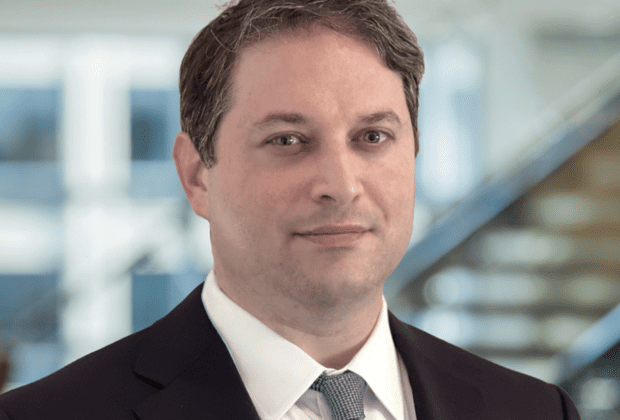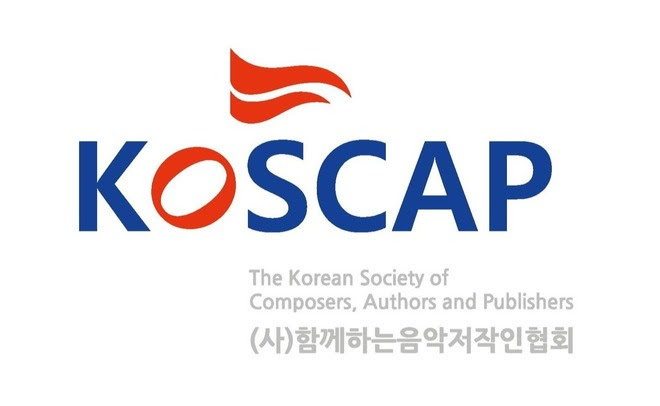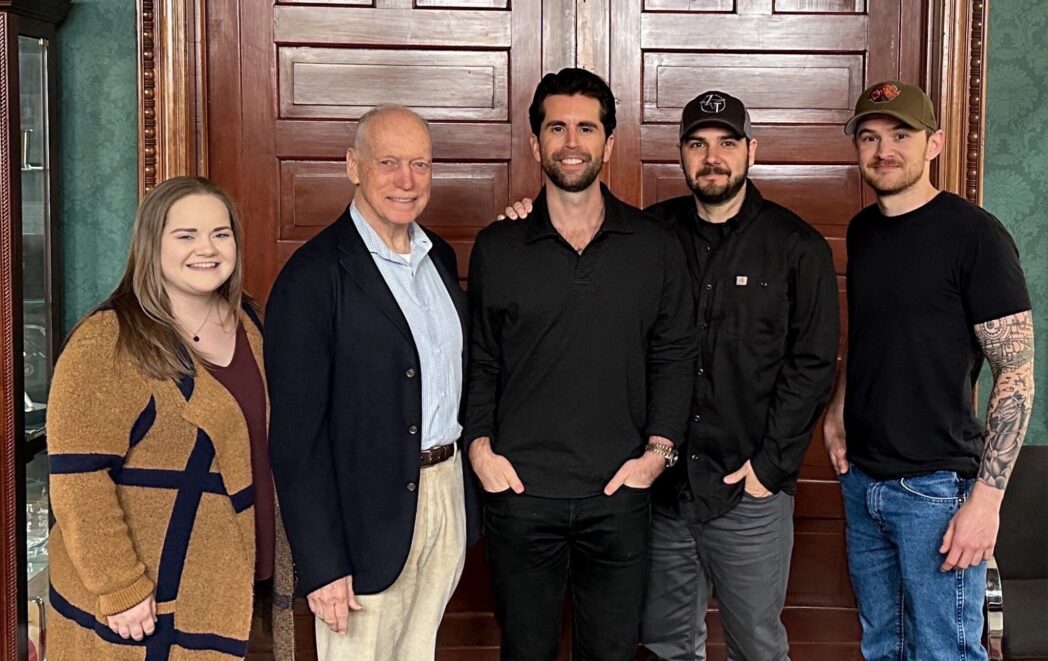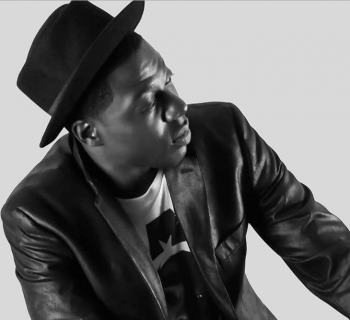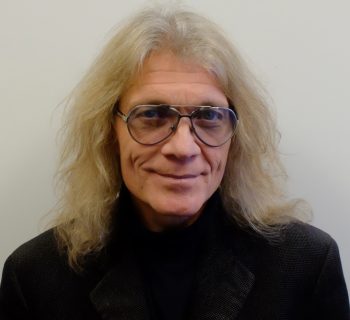Partner
Venable LLP
Years with Company: 2 Address: Los Angeles, CA
Phone: 310-229-9931
Web: venable.com
Email: JMRosenberg@venable.com
Publicity: Margo Kaplan - Venable, MHKaplan@venable.com
Clients: Many entertainment industry clients including production companies, talent agencies, management companies, concert promoters, and record labels.
BACKGROUND
Joshua Rosenberg wanted to become a screenwriter, so he moved to L.A. and earned a master of fine arts from University of Southern California. After a few years, he realized being a television and movie scribe wasn’t his destiny, so he attended Loyola Law School. In January of 2022, he joined law firm Venable, where he represents a wide variety of entertainment industry personalities and entities.
Transactional Versus Litigation Lawyers
There are two types of entertainment attorneys: transactional and litigation. Transactional attorneys do the deals. They represent the talent. Those are the types of lawyers the clients like to speak to, because usually they’re making their clients lots of money. I’m the one who comes in when the deal goes wrong.
A Hearty Defense
I try to resolve [an issue] before it goes to trial or becomes public. At the same time, I vigorously defend my clients, both on the plaintiff and defense side. When I’m representing talent, I’m protecting their rights, everything from their intellectual property to their privacy. A lot of my clients are celebrities who have stalkers, so I work with their private security and threat assessment people. I’m sort of a one-stop shop when it comes to problem solving.
A lot of the dealmaker entertainment lawyers bring me in to do everything from writing a motion to be heard in court or defend them in litigation, to some of the more sensitive matters that aren’t really resolved in court but through other means.
A Lack of Proper Paperwork
The music industry, in particular, can be problematic. If people contribute to a song and there isn’t something signed in writing, you’re going to have disputes. I have a case right now where I’m representing Jason Derulo and Sony Music, who are getting sued by a person who claims he cowrote and coproduced the song “Savage Love.” The remix with BTS was number one on the Billboard Hot 100 in 2020. That’s litigation where I’m lead counsel.
The Right Stuff
A good entertainment lawyer is someone who knows how best to solve a problem for their clients so they can go on doing what they love to do.
Putting Artists at Ease
A lot of [artists] don’t want to talk to their litigator, because it’s stressful. Part of my job is to take away the worry. That’s consistent with every client, whether it’s a singer-songwriter, an in-house counsel for a record label, or a publisher. “You are not to worry about this.” My job is to give you peace of mind.
A lot of that comes with explaining the process, projecting confidence, and making sure you earn their trust. Sometimes, I deal with lawyers, so I don’t have to explain certain things. Other times, I deal with people who have never been involved with a lawsuit. You have to really start from the beginning and distill it down. That has nothing to do with someone’s education. If someone tried to explain to me how to create a song, I would be lost. Everyone does different things. It’s just what I do.
Referring Matters to Partners
Venable is a full-service law firm. It has corporate. It has trusts and estates. It has bankruptcy. It has trademark prosecution. It has patent work. It literally does everything. I worked at a litigation-only firm for eight years. Now, not only can I handle litigation matters but also I can refer [clients] to one of my partners.
A client I’ve done litigation work for is called Love Renaissance, which is a record label. They came to me and were like, “Someone wants to buy a portion of our company.” A partner of mine does that kind of work and handled the transaction.
The Danger of A.I.
I keep an eye on some of the cases, because it’s obviously new. Technology always poses threats to the music industry. In this instance, it’s affecting all aspects of the entertainment industry, not just music but also film and television. That’s why the guilds are striking.
If you give A.I. a database of every movie ever made and a few plot points— Die Hard-meets-Pretty Woman—the screenplay is probably not going to be so bad. That’s kind of terrifying.
So lawsuits have been filed. But, at some point, technology wins out. It’s going to be interesting to see how the industry adapts to these new technologies.
“Heart on My Sleeve”
I had a referral source ask about A.I. because of that song that [sounded like] Drake and The Weeknd. “This is concerning. What’s going to happen?” And I’m like, “If something happens to one of your clients, let me know.” That example scared a lot of people. I’d like to think there’s something special about music that A.I. cannot replicate.
Protecting Your Voice and Image
There’s both the statutory law and what we call common law that protects your privacy and right of publicity. To the extent someone tries to use A.I. to replicate [your sound and likeness,] that would be a violation of those rights.
I had a matter that settled before litigation where a prominent company used not only what we call a sound-alike song of a client but also a look-alike of the artist. You had a commercial with somebody who looks just like the artist singing along to a song that sounded just like this artist’s number-one hit song. We were able to resolve that before it went to court because it was so obvious.
Register Songs and Seek Legal Advice
Register things with the U.S. Copyright Office, because that gives you a presumption of copyright ownership. And consult counsel before signing any agreement. It doesn’t have to be a top-flight firm. I know plenty of attorneys who work by the hour, solo practitioners, who zealously defend the rights of artists.
Dealing With Leaks
I work with record labels that have leaks departments and investigators. It really is a game of whack-a-mole in terms of DMCA takedowns. Discord is one that has been really problematic. It’s easier with YouTube or Facebook or Instagram. But there are websites where users are able to anonymously auction off songs. It’s tough, because not only are you trying to get stuff taken down and it keeps popping back up but also you’re trying to investigate the source of these things.
Understanding the Creative Process
I came to L.A. as a creative. I’ve seen all phases of the entertainment industry, music as well
as film and television. I really understand, appreciate and admire what an artist has to go through and how hard they have to work.

